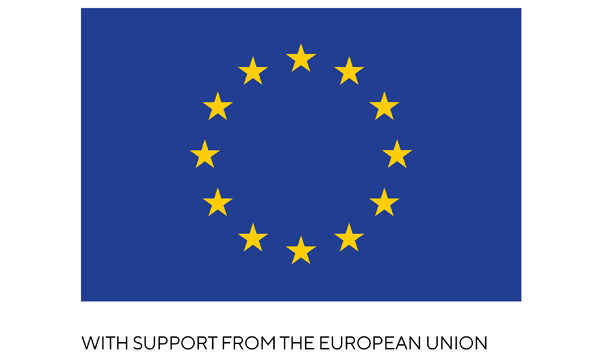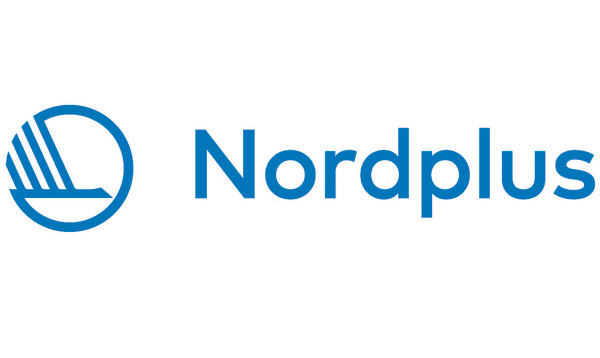SMILE: Digital teaching and learning for integration through sport
14/10/2022Melanie Schöppner, DOSB

Over the following weeks, leading up to our Integration of Refugees Through Sport (IRTS) Networking Platform workshop and conference in Brussels, we are proud to feature some of the projects that have received EU support to deliver refugee inclusion initiatives. We start with the German Olympic Sports Confederation’s (DOSB) SMILE project.
Since 1989, organised sport has been one of the most important “integration helpers” in Germany. The federal “Integration through sport” programme (IdS), the project “Welcoming through sports” as well as the federal programme “Fit for diversity” create offers for migrants and refugees within the sport clubs and enable them to actively take part in all levels of club life (informal educational processes).
An important factor for the quality of training offers on German sports fields and in German sports halls is the educational work of the DOSB and its member organisations. The topics competence orientation and digital education are constituting important pillars for the qualitative development of (advanced) training for our coaches and trainers. Both fields are constantly gaining importance and are promoted by our member organisations and our experts for competence-oriented teaching and learning (Friedrich-Alexander-Universität Erlangen-Nuremberg) and media didactics (Ghostthinker GmbH).
We are glad that our SMILE project offered the chance to merge the expertise in all these fields - with the aim to encourage sports organisations to become more open-minded about integration in the long term, to qualify our trainers and coaches for the diversity of their sports groups and thus facilitate the participation of refugees in sport.
Spotlight on the SMILE project
Back in 2020, when the DOSB and its ‘education’ and ‘integration’ departments started the project SMILE (EAC/S20/2019 SPORT AS A TOOL FOR INTEGRATION AND SOCIAL INCLUSION OF REFUGEES), the purpose was clearly on combining its long-term experience in the field of integration work with the idea of competence based blended learning. The new SMILE training programmes aimed at developing skills in the field of integration, were set up in a blended learning format and implemented with the help of digital teaching platforms.
The target group of SMILE was defined as the huge group of coaches and trainers within the German sports system that is almost daily confronted with the challenges of successful integration work – but rarely prepared for this task.
Refugees were addressed indirectly as this group does certainly profit from the implementation of our SMILE pilot courses as it encounters well-educated trainers providing optimal training conditions, also having individual solutions on their hands on how to facilitate access to sport for refugees and migrants.
Project flow
The SMILE project was structured in two pilot stages with six pilot sports organisations setting up and implementing their individual integration training courses:
• Hamburg sports federation (‘Hamburger Sport-Bund’ HSB),
• Bavarian sport association (‘Bayerischer Landes-Sportverband’ BLSV),
• Sport association of Saxony (‘Landessportbund Sachsen’ LSB Sachsen),
• German Ice Hockey Federation (‘Deutscher Eishockey-Bund’ DEB),
• German Cheerleading and Cheerdance Federation (‘Cheerleading und Cheerdance Verband Deutschland’ CCVD)
• German Cycling Federation (‘Bund Deutscher Radfahrer’, BDR)
Our original idea of the project flow was to set up one single integration module constantly developed further and optimised by all our pilot sports organisations.
In the conception phase, the focus was on the special requirements of trainers and coaches while working with refugees. According to the DOSB competence model, those special requirements are crucial for the development of qualification measures and for the precise definition of learning goals, learning tasks as well as training and further training contents.
Our experience, however, showed us the importance of an individual support of our pilot sport associations as regards their approach to integration of refugees for their training module. As diverse and individual as our sport associations in the German sports system are as individual were their requirements.
Issues of relevance were (among others):
• Understanding the different phases of the migration process
• Handling the welcoming situation of refugees in sports clubs
• Language barriers: Visualising linguistic diversity for a sensitive and respectful interaction
• Racist heckling during sports games
• Religious requirements (i.e. training and fasting during the month of Ramadan)
• Integrating Ukrainian athletes into the team
• Different basic understanding of training methods and competition
The individual support resulted in six individual training modules with different prioritisations, all of them implemented in a blended learning format. The term ‘blended learning’ is thereby used as a synonym for a mixture of online and presence learning phases, different social forms like single, tandem and group learning and different methods applied.
When looking at the field ‘qualification in sports’ blended learning means that coaches in the training programme would have to fulfil tasks in an online teaching and learning environment – in addition to the learning units in the sports schools (seminar rooms, sports halls, sports fields). This way, the learning processes in the sports schools can be closely linked to the activities in the home sports clubs and a reflected use of the knowledge acquired is facilitated.
Based on the individual coaching experiences in the first project phase and with regards to sustainability a course has been developed on the meta-level in the second project stage providing basic knowledge about the principles of competence based blended learning that can be adapted easily according to the specific needs of integration work.
Outcome and project’s achievements
Six training modules with different prioritisations were implemented and about 100 coaches and trainers in six different sports associations were qualified for their work with refugees.
“Many practical examples came from the participants’ own experiences,” Sina Hätti from the “Integration through sport” HSB programme says.
“We do see it as a confirmation that the orientation on living conditions fully worked out as a concept. Especially the advantages of the blended learning format became apparent. We managed to closely monitor the results of the single tasks in the online learning environment and were able to orientate our methodical-didactical approach on the participants’ needs.”
When developing the qualification measures the persons responsible in the pilot sports clubs for education and integration were not only trained content-related but also methodical-didactically. This enabled them to integrate blended learning in the long term into their educational structures.
“The preparation for the training modules were extensive,” Anika Waldeck from the “Integration through sport” HSB programme.
“Our programme team and educational experts had to be trained not only didactically, but they also had to familiarise themselves with the technical implementation via the online learning platform. This approach offers best chances for the team ‘Integration through sport’ of the Hamburg sports federation to develop further educational offers in a blended learning format in the future. We are already planning a next training module with the focus on the religious diversity in sports clubs.”
Romy Möbius, managing director of the Executive board of CCVD says, “We have been working for several years with qualification measures in a blended learning format. Due to the scientific support during the conception phase of the training module with focus on the DOSB competence model and blended learning we were prompted to leave our comfort zone. We became more sensitive for a methodical-didactical approach and are now better able to assess, question and further develop our participants’ feedback.”
Looking back at the experiences made in SMILE and the learning and teaching scenarios from the training modules we can notice that the project is contributing to a contemporary and modern educational work in our German sports community. This triggers intercultural opening processes as our sport clubs were put in the mood to intensify their integrational efforts.
Franziska Hoffmann, Vice Youth referent, CCVD, says, “We were concentrating on the issue of Ukrainian refugees in our training module which is really a very real-life and up-to-date requirement situation. At the same time, this was a first step for us towards a further training course in the field of integration. We are extremely motivated to open the issue and to expand our activities on the different levels of club life.”
The “DOSB-Wissensnetz” - our digital information and exchange platform for the non-profit sports system in Germany - and the “meta-course” developed in the second project phase now offer us the chance to share the project results with our member organisations and to exchange knowledge. In this way we can ensure a future-oriented support for our member organisations which will enable them to bring their educational qualification offers in the field of integration work forward towards modern teaching and learning formats such as blended learning - all in all with the aim of strengthening sustainably integration work in the field of sports.
Let's go with a “SMILE” for more integration!
Visit the official homepage for the project








Connect
Subscribe to our newsletter for regular updates on our events, activities and opportunities in our network
You can unsubscribe at any time.




